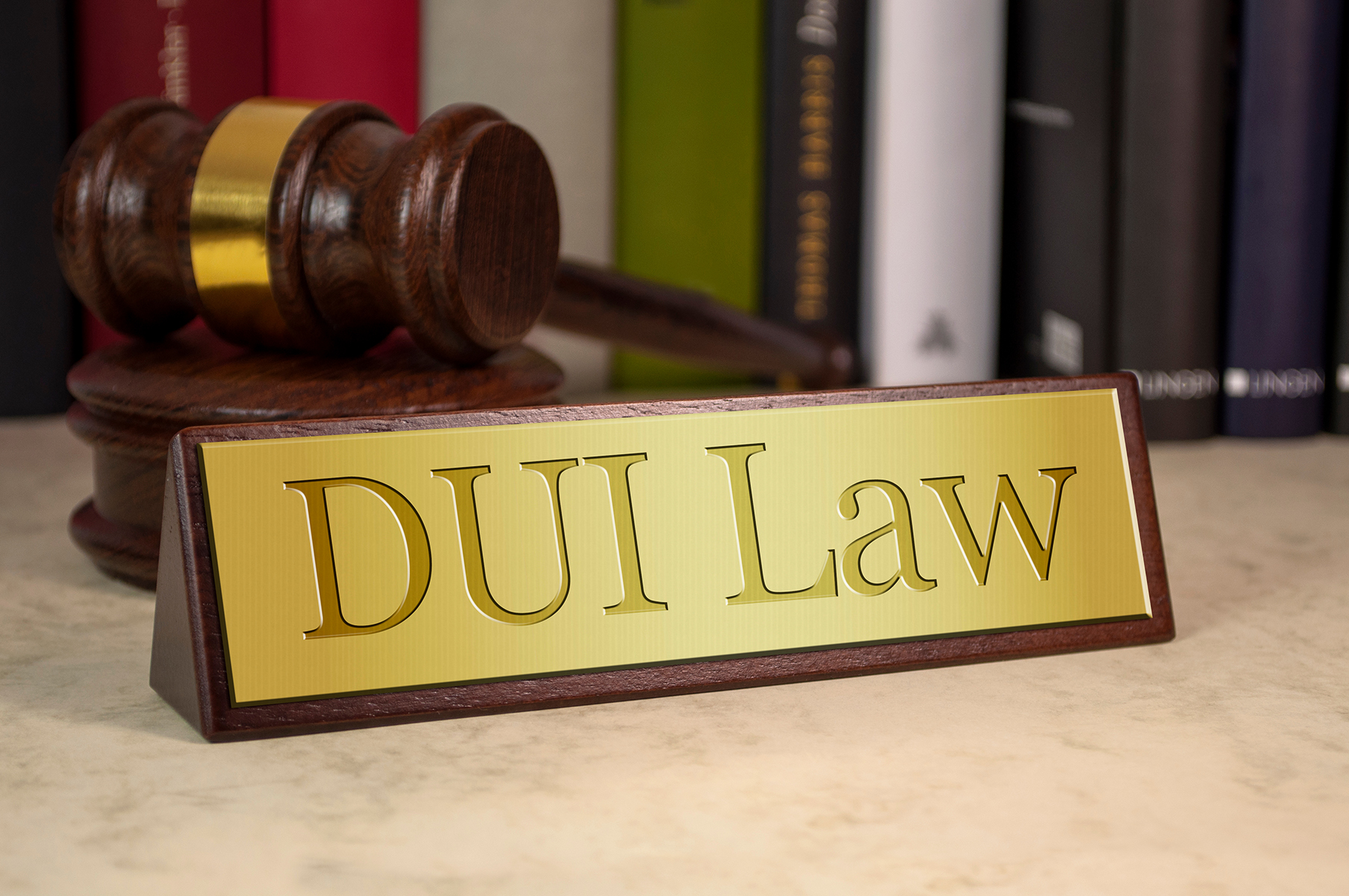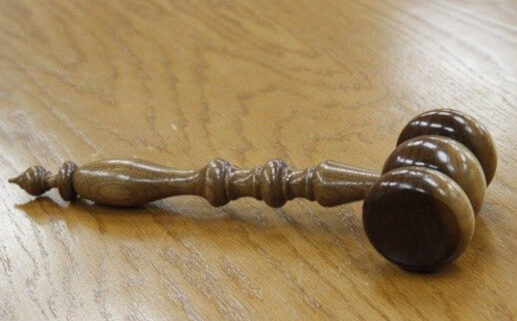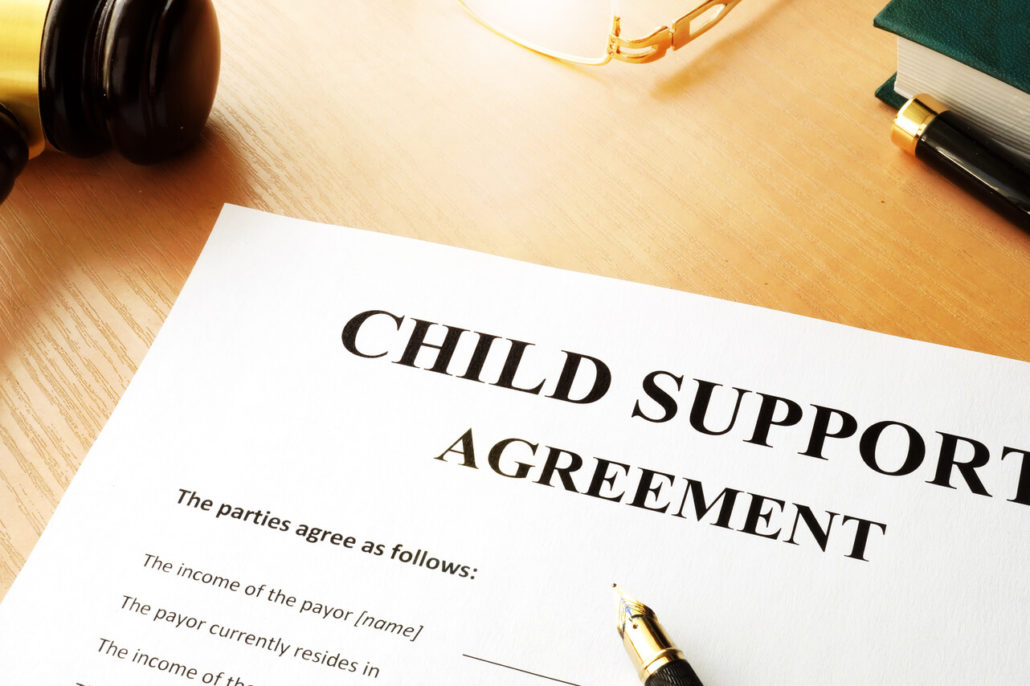How Long Does a Divorce Take in Tennessee?
The real answer to the question "how long it does it take to get a divorce in Tennessee" is “however long it takes”. However, you can estimate some numbers to answer the question. Most divorces take two to six months to work their way through the system. Of course, contested divorces can take much longer.
“Quickie” Divorce in Tennessee
As your Knoxville divorce attorney can further explain, Tennessee offers two forms of divorce: uncontested and contested. By Tennessee standards the uncontested form is as quick as they come. A divorce is considered uncontested when both parties agree to mediation, remain basically on the same page about the divorce and share no minor children But even when no children are involved and both parties are on the same page, you must wait through a mandatory 60-day period after filing in the courts to finalize.
To have your divorced finalized within two months, you and your opposing party must come to an agreement via mediation, rather than challenging the divorce in court. In most cases, the splitting of marital assets through mediation can save you much time and money.
What If We Go to Divorce Court?
In a contested divorce, two parties who cannot agree through mediation or have shared minor children find themselves facing off in court. This changes the length of time it takes to get a divorce in Tennessee drastically.
However, even with court proceedings, the divorce process can move quickly once the 60-day waiting period ends and a court date is established. If litigations over disagreements don't bog everything down, parties can achieve a quick solution. Even in court, a divorce can be final in a matter of weeks.
Divorce Can Take a Very Long Time
What if those seeking a divorce cannot agree on anything from division of assets to child custody? In those cases, how long might a divorce take?
Though longer than an uncontested divorce may take, even in contested divorce where everyone ends up in court most cases wrap up within 6-18 months. Be forewarned that particularly contentious divorces can take years to become final. Some other factors that might increase the time taken for a divorce to finalize include:
- At least one spouse must have a Tennessee residency for at least six months. Plus, children living outside the state complicate custody arrangements, which could prolong the process.
- Before any case appears before a judge, the filing spouse serves a summons on the other. The person receiving the summons has 30 days to respond or file a counter complaint. If that spouse serves in the military, the court may award extra time, depending upon circumstances.
- Tennessee courts require both parents of minor children to attend and complete a parenting class to learn how divorce impacts children.
- Also, affecting divorcing parents of minor children, a Tennessee divorce court requires parties to attend a facilitated mediation. Its goal being to guide parents into a parenting plan agreeable to both parties.
Hire a Knoxville Divorce Lawyer
When filing for divorce in Knoxville, TN, the person represented by a local attorney sometimes has the upper hand in court. Contact Jed McKeen at McKeehan Law Group today for your free consultation.
Personal Injury FAQs
Severe personal injuries occur because of unexpected events. If you’ve been injured suddenly, you may not know what to do to pursue justice and compensation. A personal injury claim handled by experienced attorneys makes it possible to do just that. Although a personalized consultation is necessary to learn more about your injury, below we look at some of the most common questions about these claims.
What to Consider Before Hiring a Personal Injury Attorney
Q: What injuries qualify a victim for a personal injury case?
A: The type of injuries that trigger a lawsuit case vary widely. Some examples include, but are not limited to, the following:
- Fractures
- Burns
- Brain or spinal cord injury
- Scarring or disfigurement
- Loss of limbs or other body parts, as result of injury
Q: When should you hire a lawyer?
A: Technically, the process never requires an attorney. However, the success rate of cases improves substantially once counsel is in place. If you decide to hire a personal injury lawyer, it’s best to do so as early in the process as possible.
Q: How much does it cost to hire a personal injury attorney?
A: Our Knoxville personal injury attorneys offer a free consultation to anyone wishing to hire us. In this meeting, our attorney can offer a view into the fee structure. Sometimes a personal injury attorney charges a percentage of compensation won in a personal injury, but this is something to review with your lawyer.
Questions About Your Lawsuit
Q: Will we end up in a trial for my personal injury case?
A: The quick answer to this question is ‘no’. In most cases claims can be settled before a trial is required. A good personal injury attorney guides their clients to a fair settlement, but also advises to go to trial, if the offer isn’t enough.
Q: How long will it take to resolve my case?
A: Unfortunately, the answer to this question varies. Once the case gets rolling your attorney may be able to offer an estimate, but things rarely go smoothly, and delays can occur. Everyone involved in the process needs to be patient.
Q: How much can I get in compensation?
A: No attorney can predict how much you might get in compensation before meeting with you to learn all the facts around your case. If they do, don’t trust them. Period. Experienced personal injury lawyers, like those at McKeehan Law Group, may be able to give you a range to expect after meeting with you. This range is generally based on other cases they’ve handled.
To offer you some information, the amount of money you may get depends on circumstances. This calculation may be based on the following:
- Present and future medical bills from treatment of your injury
- Proven loss of income
- Costs of rehabilitative treatment
- Costs of assistive devices, technology and modifications necessary to adapt to life with your injury
- And in some cases, pain and suffering. Because there are no direct costs associated, proving pain and suffering loss presents a challenge. It is a subjective amount.
Contact the McKeehan Law Group for more information or free consultation by calling (865) 294-8008 or send us a message.
Are DUI Checkpoints Legal in Tennessee?
We've all been there. Driving down a Tennessee road to suddenly see a lot of blue lights flashing and cars slowing down. Checkpoints for any reason can be stressful, but DUI checkpoints sometimes result in disaster for a driver. The best way to avoid trouble at a DUI checkpoint is to not drink and drive. However, the flaws in some sobriety tests can result in even a sober person being arrested. Because of concerns it's important to educate yourself about your rights ahead of time.
Important Questions about DUI Checkpoints in Tennessee
Are DUI checkpoints legal in Tennessee?
You might wonder if this sort of random stop is even legal in Tennessee. The answer is yes.
Why does Tennessee allowed DUI checkpoints?
The CDC estimates that one out of ten possible deaths can be prevented by a checkpoint. The safety of Tennesseans can be protected, even as they are inconvenienced.
What rights do drivers retain in a checkpoint?
It is important to remember your rights, if you encounter a checkpoint. Here is a basic list:
- There is no requirement that you go through a checkpoint at all. If legally able to do so, you can turn around.
- You do not have to answer extraneous questions asked during the stop. Officers can only require you provide your driver's license, registration and proof of insurance.
- You can refuse to take a sobriety test, if one if requested by an officer. However, you may encounter excessive pushback or other consequences of refusal.
- Officers need probable cause to search your vehicle. Don't give them one. Have all of your information ready before getting to the front of the line, even if that means pulling over and gathering it ahead of time.
Can you challenge the results of a DUI checkpoint?
You can challenge a DUI arrest from this source, just like all others. As mentioned above, challenging the legality of the stop probably won't get your charges dropped, but you can challenge everything else. In order to present a strong defense, finding a good lawyer can make all the difference. Schedule a free consultation with an experienced DUI defense attorney from McKeehan Law Group today!
Are Tennessee Divorce Records Public?
Divorce proceedings involve discussion of your life's most intimate details. If you end up in court, this all becomes part of the public record. Because of these rules you may be wondering how to protect yourself.
Tennessee Open-Record Laws
According to Tennessee divorce law, most court records must be available to the public. Going through a contested divorce that requires courtroom litigation requires all documentation to be filed. Once filed, these documents are open to the public. Because a lot of private information surfaces during divorce hearings you run the risk of having it negatively affect your life. For example, your employer could discover something that could damage your career. If this all sounds disturbing, you have a couple of options to protect your privacy.
Protect Your Privacy with Mediation
A couple who both agree to end their marriage may find a solution through mediation. In this case you do not meet in court. Discussions during mediation do not result in recorded testimony, meaning your divorce's messy details do not end up in any documentation. Records required to finalize a mediated divorce only contain the agreed-upon outcome and no details of what transpired between parties during the process. And as a result you maintain more privacy.
Protecting your privacy is one of many reasons to work it out with your spouse during mediation, but there are others. One big reason is a requirement by Tennessee law to attempt mediation first, if no children are involved. Working it out in this first step saves time, heartache, and money. (Learn more about mediation here.)
Sealing Divorce Documents to Protect Privacy
If mediation doesn't work and you end up in divorce court, you run into more challenges to protecting your privacy with few solutions. A judge seals divorce papers under some circumstances. If records aren't sealed any documents filed with a Tennessee court clerk are available to the public. Situations possibly calling for a judge's seal can be as follows:
- Records concerning abuse or other sensitive topics involving minors
- Details concerning domestic violence
- Company records: financial or other private data
- Information that might open the door to identity theft, like a Social Security number
- Details about addiction or mental illness
- Potentially libelous claims
You can find the provisions specific to documents filed under seal in the state of Tennessee here.
How Easy Can the Public Attain Divorce Records?
Although technically unsealed divorce records are public, in Tennessee divorces granted after 1970 enjoy some level of protection. To obtain those records from the Tennessee Vital Records Office an individual must submit a request in person or by mail for a fee. However, you must present a legitimate or direct claim to see them and provide all relevant information. This information includes:
- The names of both spouses
- A 5-year range or actual date the divorce was granted
- Plus, knowing the county where the divorce happened is useful.
Knoxville Divorce Attorneys Here to Help
The attorneys of McKeehan Law Group in Knoxville have the experience to assist in your divorce proceedings. Contact us today for a free consultation.
3 Things You Should Know Before Your Court Date
There are many things about which someone preparing to appear in court need to know. In a video series, I answer many of these questions about the law and more. (View them all here.) In today's blog post, we'll highlight some of the basic questions frequently asked about appearing in court.
What should I wear to court?
It's a good thing to need an answer to this question because that means you've never been to court. The answer may vary depending upon the attorney you ask. Watch this video where I explain my views on this topic.
My tips include the following:
- Do NOT wear a suit to court. This is because for most appearances wearing a suit can make you look desperate. There are exceptions:
- People who are facing a murder charge should wear a suit.
- And if you wear a suit in your normal day to day life and are comfortable in it.
- DO wear business casual. Some suggestions:
- That means a dress shirt / button down or nice blouse.
- Nice pants or a skirt.
- A modest dress would be ok.
- Clothing options you definitely should NOT wear:
- Do not wear a t-shirt, particularly one with a slogan. Those can be seen as disrespectful.
- Shorts. In fact, some judges won't even allow them into their courtroom.
Where Do I Sit in the Courtroom?
Seems like a simple topic, but it's not necessarily self-explanatory. You may be on the docket with many other cases, so it is necessary to wait in the gallery. A couple of notes about coming to court:
- One important rule for the courtroom is DON'T BE LATE!
- A physical barrier (a.k.a. a bar) divides the courtroom into two parts. The gallery (audience) sits behind the bar with the judge, attorneys, defendant and other trial participants in front of it. You'll sit in the gallery until your case is called.
- Getting there early enables you to choose a good seat in the gallery. Sit close to front and near the aisle to wait your turn.
- You go in front of the bar when the court calls your case.
- Your attorney may have you sit at the table next to them, or the judge may have you stand in front of the courtroom to give your testimony.
- If you sit at a table, the defendant's table is the one furthest away from the jury box, even if there is no jury present. This helps the judge know right away which is the defendant.
For more information about courtroom seating, watch this video:
Will the Other Side Be There When I Talk to the Judge?
Often on television and in movies you'll see attorneys in conversation with a judge outside the courtroom without the other side present. This may provide great theater on screen, but it almost never happens in real life.
Communication with a judge outside the presence of opposing counsel is called ex parte, which means one party in the case is excluded. The reason we say it almost never happens, instead of a definitive never happens, is in cases of emergency. In order to protect others in situations involving domestic violence or children an attorney may approach a judge outside the courtroom setting. But even in these cases a hearing must take place within 10 days, guaranteed.
I cover this topic with a little more detail in this video:
If you find yourself in need of legal representation, call McKeehan Law Group today at (865)294-8008 or send us the details through our website.
Is a Personal Injury Settlement Taxable?
Court settlements are taxable. Right? The short answer is usually, but with one major exception. The exception made to federal tax law applies to personal injury settlements and awards, although that isn't even absolute. Let's take a look at whether or not you pay federal taxes on a personal injury settlement or award.
Personal Injury Settlements
There are three types of personal injury settlements: compensatory damages, lost wages and punitive damages. We'll briefly explore the definition of each settlement.
- Compensatory damages include any measurable expense incurred resulting from your accident. This includes economic damages, like medical expenses, property damage. Also included in compensatory damages can be non-economic damages, such as emotional distress, mental anguish or loss of consortium.
- The calculation of lost wages includes loss of paychecks or a source of income. This is certainly the easiest monetary claim to make and most likely to be included in any settlement. Lost wage replacement counts as compensatory damage, but it's important to keep those apart when talking taxes. Calculating lost wage compensation results in a proven percentage of your settlement to exempt from taxes.
- Punitive damages prove much harder to claim. The courts award punitive damages to punish those who've caused injury, in other words damages based on "pain and suffering". In Tennessee the plaintiff must produce untarnished and convincing evidence that the defendant acted in a malicious, fraudulent, or reckless way.
Are Personal Injury Settlements Taxable or Not?
Generally, the federal government does not require a plaintiff to pay income tax on compensatory damages or lost wages The settlement replaces a loss, making it a net gain of zero. Because of this calculation compensatory damages do not count as income. There are specific circumstances around injury and damages that qualify the gains as non-taxable. The American Bar Association outlines the rules here. It's important to note medical expenses are tax-free, which include treatment for emotional, as well as physical, injury.
On the other hand, a payout for punitive damages equates additional income for the plaintiff. In the rare cases the courts award punitive damages to a plaintiff, that income could be taxed.
Examples of cases whose settlement usually avoid taxes:
- Car wrecks: Save all receipts for work on your vehicle to prepare damage, as well as any medical expenses incurred not paid by insurance.
- Slip and fall: Document your injuries and keep up with medical expenses, even those from alternative medical sources, like chiropractors or acupuncturists.
- Dog bites and attacks: Same as slip and fall expenses.
- Wrongful death
- Product liability: Don't forget to include the cost of the product that caused harm.
Conclusion
As part of your case, it is advised to not only hire a good personal injury attorney but also find a tax accountant who can keep you in compliance with current tax law. Otherwise, you may miss some important steps and need a lawyer for a completely different purpose later on.
For a free consultation on the legal side of personal injury law, contact McKeehan Law Group today!
Don't Ruin Your Holiday With a DUI: 10 DUI FAQs Answered

Tis the season for celebration! Try not to ruin it with a DUI. Don't mess up your holiday by celebrating too much and getting behind the wheel. We recommend lining up a sober driver lined up or taking an Uber or taxi if you’ve had too much to drink at that holiday party. However, people don’t always make great decisions when they’re having fun, so knowing that facts is key. To help you out this holiday season, we answer some frequently asked questions about DUI laws and punishment in Tennessee. (If you’re already in trouble, call McKeehan Law Group at (865)294-8008.)
FAQs About DUI in Tennessee
- What is a DUI in Tennessee? In the state of Tennessee, a person whose blood-alcohol level is determined to be 0.08 or greater will be considered impaired and likely charged with Driving Under the Influence (DUI). (DUI can also cover the influence of drugs, but we’ll cover that in another blog post.)
- Are DUI checkpoints legal? Yes. Tennessee law considers DUI checkpoints a legal action. Remember: Be mindful of police behavior at the checkpoint because they must follow certain rules. These rules grant drivers specific rights if claimed.
- Is driving under the influence a felony or a misdemeanor in TN? The first DUI offense in Tennessee is considered a misdemeanor, as are DUI numbers two and three. Keep in mind if you receive a fourth DUI conviction, your charge bumps up to a Class E felony.
- In Tennessee what happens after conviction for a first offense? You will spend a minimum of 48 hours in jail with a much higher threshold for punishment after a conviction for driving under the influence. Additionally, consequences can include up to 11 months and 29 days in jail, plus loss of license for a year, fines, court cost and/or community service hours.
- How long does a DUI stay on your record? In Tennessee a conviction for driving under the influence will stay on your record for life. Repeat offender status happens only after a second conviction for driving under the influence within 10 years.
- What happens when you get a second DUI in Tennessee? If that second conviction occurs within 10 years of the first, there are serious consequences. A conviction can result in jail time anywhere from 45 day to 11 months and 29 days. In addition, the court collects a mandatory fine totaling anywhere from $600 to $3500, plus you lose your driver’s license for 2 years.
- Can a DUI conviction be expunged in Tennessee? No. As mentioned above, a conviction remains on your record for life in Tennessee. However, Tennessee courts provide an opportunity for record expungement if they dismiss your charges or they otherwise don't result in a conviction.
- Is your license immediately suspended after being arrested? Your license is not suspended while your case is pending. As a matter of fact, only a conviction for driving under the influence results in license suspension.
- Does a DUI show up in a background check? If you are convicted of driving under the influence, the answer is yes it will show up in a background check. However, background checks include convictions only. This means a simple arrest or suspicion of driving under the influence remains off the record. When a case is pending or verdict remains outstanding, a background check might include them.
- How much is DUI school in TN? Sometimes a conviction results in a defendant attending DUI school. In Tennessee, there are multiple choices. The cost of these schools varies, because of this it’s best to do your own research. Often attendance to these schools or classes can be part of a plea deal and lessen your charge substantially. That makes whatever the cost a solid investment.
Hiring a Lawyer
If you do find yourself in trouble for driving under the influence, the experienced DUI attorneys at McKeehan Law Group are available to help. Don't forget that it’s always a good idea to hire representation, so contact us today for a free consultation.
Contested Divorce in Tennessee: What to Do When Spouses Can’t Agree
No doubt getting a divorce under any circumstances is stressful. Even when a marriage ends without a challenge from either party, there are many steps to finalizing a divorce. When the divorce is contested, the process is far from easy, and the stress level can be through the roof. We offer some guidance for the process of filing for a contested divorce in Tennessee below, but if you want to speak to a divorce attorney directly, contact us today.
What is a Contested Divorce?
Let’s begin by defining a contested divorce. In Tennessee a divorce can be settled when a couple agrees their marriage cannot be saved due to “irreconcilable differences”. In these cases, it is considered an uncontested divorce. This type of divorce still takes a few months to finalize, but it is a simpler process than others. Conversely, a Tennessee “contested divorce” is when the parties cannot agree and end up in court to iron out their differences. This can take many months.
How to File for a Contested Divorce?
In Tennessee, a divorce can be difficult to get without agreement between spouses or proof of very specific circumstances. To navigate the proof of circumstance, paperwork, and court system, it’s best to hire an experienced divorce lawyer right away.
Before you file for a contested divorce, you must have proof of one following condition:
- Abandonment;
- Adultery;
- Attempted murder;
- Bigamy;
- Conviction of a crime (either a felony or one resulting in infamy);
- Habitual drunkenness or abuse of any narcotic;
- Impotence and sterility;
- Impregnation of a wife by a man not her husband at time of marriage without husband's knowledge;
- Inappropriate marital conduct (treatment or conduct considered cruel and inhuman);
- Repeated indignities to a spouse's person;
- Spousal refusal to move to Tennessee resulting in living apart for at least 2 years; and
- Willful or malicious desertion for a year without a reasonable cause.
The proof to obtain a contested divorce often requires eyewitnesses, digital trails, video or audio recordings or financial records. Once that is in hand, your attorney will start to advance your case through the system.
Overview of the Divorce Process in Tennessee
The divorce process begins with filing a Complaint with the court, and if you are the first to file, you become the plaintiff. There are no tangible advantages to filing for divorce first, other than having more control of the momentum of your proceedings. At the same time, you must also file a Certificate of Divorce.
Your Complaint for Divorce must include specific information.
- Full names and Social Security numbers of you and your spouse
- Current mailing addresses of you and your spouse
- Your birthdate, and those of your spouse and all minor children in your marriage
Once the correct paperwork is filed, your spouse must be served both the Complaint and a Summons to court. Then things really get started.
Is It Worth Contesting a Divorce?
If there is any way to come to a resolution through mediation, you would avoid a lot of expense, stress and wasted time. However, when there is contention over custody of minor children, contesting a divorce may become necessary.
Hiring an experienced divorce attorney, like those from McKeehan Law Group, may be an expense but having the right lawyer to fight for you can make all the difference. Without competent legal representation, the outcome will likely be unsatisfactory. Prepare as if your spouse will hire a lawyer because that is likely. Even if they do not, having legal representation gives you an advantage.
Contact one of the Knoxville divorce lawyers at McKeehan Law Group today for a consultation. Don’t wait because timing is everything when it comes to divorce proceedings. Waiting too long makes achieving your desired outcome more difficult and costly. You can call them today at (865)294-8008.
Pain & Suffering: Personal Injury Law
Calculating the monetary cost of an injury from a car accident is usually straightforward. The repair of automobile damage creates a clear expense. The same can be said for treatment of any physical injuries a person experiences. Damages with a provable monetary cost attached easily fit into a personal injury settlement negotiation.
Still, personal injury can have effects beyond the immediate expenses to repair damage. In Tennessee plaintiffs can sue for both economic and non-economic damages, the latter tied to pain and suffering.
What Is Pain and Suffering?
According to Tennessee law, pain and suffering claims must meet certain criteria. So in order to make a claim, you must be able to define what in your life has been affected by your injury and how. You can sue for three types of non-economic damages: pain & suffering, emotional distress, and loss of consortium.
The Tennessee Court of Appeals attempts to define “pain and suffering”:
“Pain and suffering encompasses the physical and mental discomfort caused by an injury. It includes the wide array of mental and emotional responses that accompany pain, such as anguish, distress, fear, humiliation, grief, shame, and worry.”
Examples of Pain and Suffering Claims
To successfully sue for pain and suffering, an injured person must be specific. You should develop a powerful narrative describing the ways an injury changed your life. Here are some examples:
Example One – A Broken Foot: Your foot is broken in a car accident. How might that result in a settlement?
- Medical Treatment (economic damages): Cost connected to treatment
- Short-term effect (economic and non-economic damages): Uncomfortable recovery – laying in bed, only getting around with assistance, etc. You can’t go to work, resulting in lost wages.
- Long-term effect (non-economic damages): Scarring of your foot limits your mobility long-term and/or causes pain.
- P&S compensation might be calculated according to the amount of backpay you’ve lost and how a jury might judge the severity of your discomfort and the ongoing inconvenience of being injured. You must be specific about WHAT pain & suffering you’ve experienced: “I used to be able to work in the garden or take a side job mowing yards to make more money, now I have to ice my feet every night.”
Example Two – Mental injury caused by another party: In order to successfully sue for mental effects of injury and/or emotional abuse, a plaintiff has to do a bit more work. To get compensation for pain and suffering in these situations, you must go to a psychologist or counselor. It is necessary to seek treatment and/or have a specific diagnosis because proving a mental injury without is difficult. Juries have a lot of latitude to make a judgement in these cases.
Limited Payout in Tennessee
Tennessee Law now limits personal injury payments for pain and suffering to $750,000, or $1 million for catastrophic injuries. Those include spinal cord injuries, amputation of hands or feet, 40% body coverage in third-degree burns, and wrongful death that leaves a minor child without a parent.
Contact the McKeehan Law Group today for a free consultation to learn how they would proceed with your personal injury lawsuit: send us a message online or call (865)294-8008.
Personal Injury Settlement & Child Support
Most personal injury cases settled out of court without parties appearing in front of a judge. Once you have come to an agreement, you can count on getting every penny of the settlement. Right????? This is not necessarily the case in all situations. One thing that can seriously affect collection of the settlement is child support.
How is Child Support Determined?
Understand the calculation of child support payments before considering what a personal injury settlement might mean. In the state of Tennessee, as well as other jurisdictions, child support payments are generally based on the parents’ combined adjusted gross income (AGI). Child support calculations start with a percentage of income and considers the custodial agreement. Income includes salary/wages collected, social security payments, rental income, etc.
There is a formula to determine how much is required each month to support a child and then how much each parent must contribute, taking the AGI into account, as well as any custody arrangement.
How Debt Collection Laws and Back Child Support Debt Can Affect Your Settlement
Child support agreements have no immediate affect on a personal injury settlement, unless you are in arrears (owe back payments). However, there’s no guarantee the custodial parent of your child won’t try and renegotiate the agreement, if your settlement is substantial, by filing for a modification of child support. Because a drastic change in salary is usually the catalyst necessary for a modification, your settlement may be safe.
This is not the case if you are in arrears. If you owe back child support, keep reading to learn what might happen.
Tennessee law considers a personal injury settlement property. The courts can seize personal property if there is a past-due child support obligation. Like most states, Tennessee takes child support arrangements and the responsibility of parents to care for their children seriously. Because of this view, being in arrears can result in the court putting a lien against this new property to settle your debt. The law requires your attorney to garnish any settlement by an amount equal to your debt.
In any of the above circumstances, you can’t go wrong by scheduling a free consultation with an attorney at McKeehan Law Group. Our firm offers expert representation in both child custody and personal injury law.






